Being a complete DJ means having the full range of skills necessary to provide an exceptional experience. DJing is not just about pressing buttons or playing pre-recorded playlists; it’s the art and skill of curating, mixing, and blending music in a way that elevates an event or performance. True DJing involves reading the crowd, selecting the right music, using technical skills to mix tracks seamlessly, and creating a musical journey that connects emotionally with the audience.
A DJ must go beyond simply selecting songs—they must craft an immersive experience through the skillful manipulation of music and crowd interaction. Let’s break down the five essential tools every complete DJ needs to master.
1. Emcee (Master of Ceremonies)
Overview:
The role of an emcee (MC) goes beyond playing music; it’s about engaging the audience and ensuring the event flows smoothly. An emcee interacts with the crowd, makes announcements, hypes up the room, and sets the tone for the event.
Importance:
- Engagement and Interaction: An emcee brings energy and directs the crowd, which is especially important at events like weddings, parties, or corporate gigs. A DJ who can also emcee can control both the music and the mood.
- Event Flow: From announcing special moments to guiding transitions, an emcee ensures the event runs smoothly without awkward pauses.
- Command Over the Atmosphere: Through their voice and interaction, emcees can energize or calm a crowd, giving the DJ full control over both the music and the atmosphere.
Why DJs Need It:
A DJ who can emcee adds tremendous value to their services, offering not just music but also crowd control and interaction. It allows for a more personal touch, ensuring that the DJ connects with the audience on a deeper level.
2. Equipment Mastery
Overview:
Being a DJ means mastering the equipment that powers your performance. This includes turntables, mixers, controllers, speakers, microphones, and other hardware used to mix and manipulate sound.
Importance:
- Sound Quality and Performance Reliability: Knowing your equipment inside and out allows you to deliver high-quality sound and troubleshoot any issues that might arise during a set.
- Flexibility and Versatility: A DJ who knows how to work with various gear can adapt to different venues and sound systems, from a small bar to a large festival stage.
- Creative Control: Mastering your equipment allows you to incorporate live mixing, scratching, beat matching, and other real-time manipulations that make a DJ set truly dynamic. This is the core difference between an active DJ and someone who is just “pressing buttons.”
Why DJs Need It:
Equipment mastery is critical because it directly impacts the quality of the music and the overall experience. It allows DJs to perform at their best, remain adaptable to technical challenges, and stand out by offering a hands-on, interactive experience rather than just playing a pre-set playlist.
3. Preparation (Track Selection and Event Planning)
Overview:
Preparation involves curating the right music for the event, planning transitions, understanding the client’s needs, and ensuring everything is set up perfectly before the event starts. Being prepared ensures a smooth performance.
Importance:
- Personalized Music Selection: Different events, crowds, and venues call for different styles of music. A well-prepared DJ knows their audience and tailors their music selection to match the event’s tone and energy.
- Planning Transitions: Preparing allows a DJ to plan how they will transition from one track to the next, ensuring a smooth, uninterrupted flow that keeps the dance floor full.
- Backup Plans: Technical issues or unexpected crowd reactions can happen. A prepared DJ has contingency plans, whether it’s backup equipment or additional tracks that can be easily substituted.
Why DJs Need It:
A prepared DJ is a professional one. It ensures that they can adapt to unexpected challenges while keeping the music and energy flowing, offering a seamless, top-tier experience.
4. Presentation (Stage Presence and Branding)
Overview:
Presentation is about how a DJ carries themselves on stage, their visual connection with the audience, and the way they project their personality and brand. This includes everything from body language and attire to how they interact with the crowd.
Importance:
- Creating an Emotional Connection: Strong stage presence helps the DJ build a rapport with the audience, making the experience more personal and engaging.
- Enhancing the Performance: A DJ’s stage presence can elevate the energy in the room. Dancing, interacting, or even just making eye contact with the crowd shows confidence and creates an engaging atmosphere.
- Branding and Image: A DJ’s presentation is a part of their brand. Their personal style and how they carry themselves can attract certain audiences and build a following.
Why DJs Need It:
Good stage presence turns a DJ from a background player into a key part of the entertainment. It’s essential for connecting with the crowd, keeping the energy high, and enhancing their overall reputation and appeal.
5. Musicality (Music Knowledge and Live Mixing)
Overview:
Musicality refers to a deep understanding of music structure, rhythm, melody, harmonics, and the skill to manipulate tracks in real-time. This is where a DJ shows true artistry, going beyond just playing songs to creating a seamless, dynamic flow of music.
Importance:
- Live Mixing and Blending: Understanding tempo, rhythm, and key allows DJs to blend songs smoothly, keeping the energy consistent and ensuring transitions are seamless.
- Genre Versatility: A DJ with strong musicality can adapt to various genres and audiences, creating a more versatile and engaging experience. They can read the crowd and choose the right music at the right time.
- Creativity and Innovation: DJs with musical knowledge can create unique mashups, remixes, and improvisations during a live set. This keeps the performance fresh and exciting.
Why DJs Need It:
Musicality is at the heart of what it means to be a DJ. Without it, the performance can feel stale or disjointed. A DJ with a deep understanding of music can craft an experience that flows effortlessly, keeping the crowd engaged and entertained from start to finish.
The Ability to DJ: More Than Just Pushing Buttons
True DJing involves much more than pressing buttons on a pre-recorded set or playlist. It requires a blend of creativity, technical skills, and an understanding of music and the crowd. Here’s what it means:
- Live Mixing: The ability to mix tracks on the fly, matching beats, and rhythms seamlessly.
- Beatmatching: This is a fundamental DJ skill that involves adjusting the tempo of one track to match another for a smooth transition.
- Scratching and Effects: DJs add flavor to their sets by using scratching techniques and effects to manipulate the sound and engage the crowd.
- Reading the Crowd: A great DJ can read the mood of the audience and adjust their set to keep the energy high, switching tracks, genres, or pacing as needed.
DJing is an active, creative process, one that requires constant awareness, technical prowess, and musical intuition. A true DJ creates an evolving musical journey in real time, one that leaves a lasting impact on the audience.
Conclusion: Becoming a Complete DJ
To be a complete DJ, you must master more than just the basics of playing music. You must be an emcee who can engage the crowd, an expert in your equipment, thoroughly prepared for every performance, have a strong stage presence, and possess a deep understanding of musicality. Above all, you must actively DJ, using live techniques to manipulate and blend music seamlessly, creating an unforgettable experience for your audience.
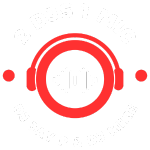


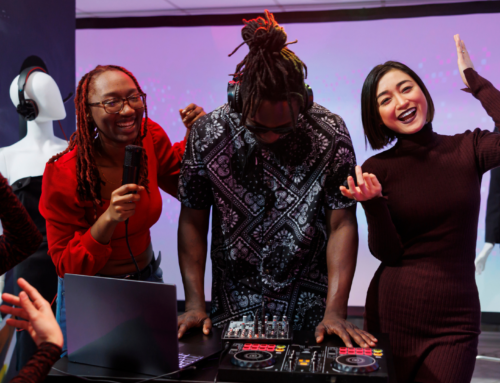
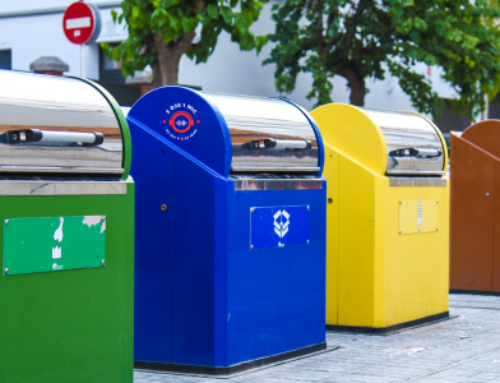
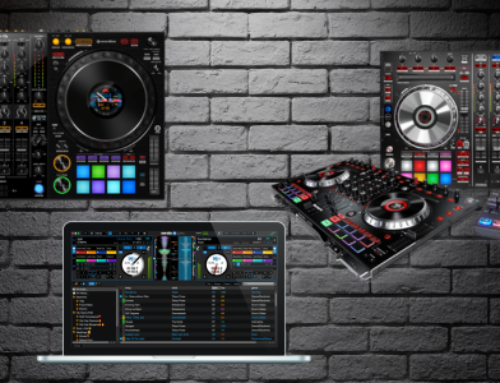
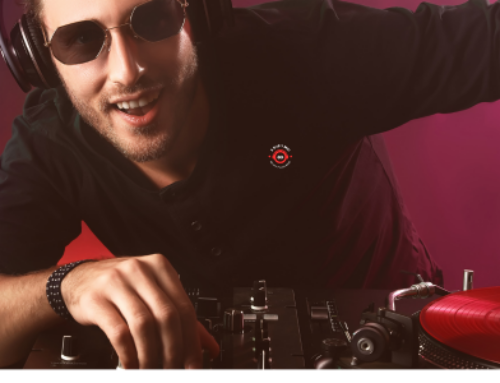
Leave A Comment